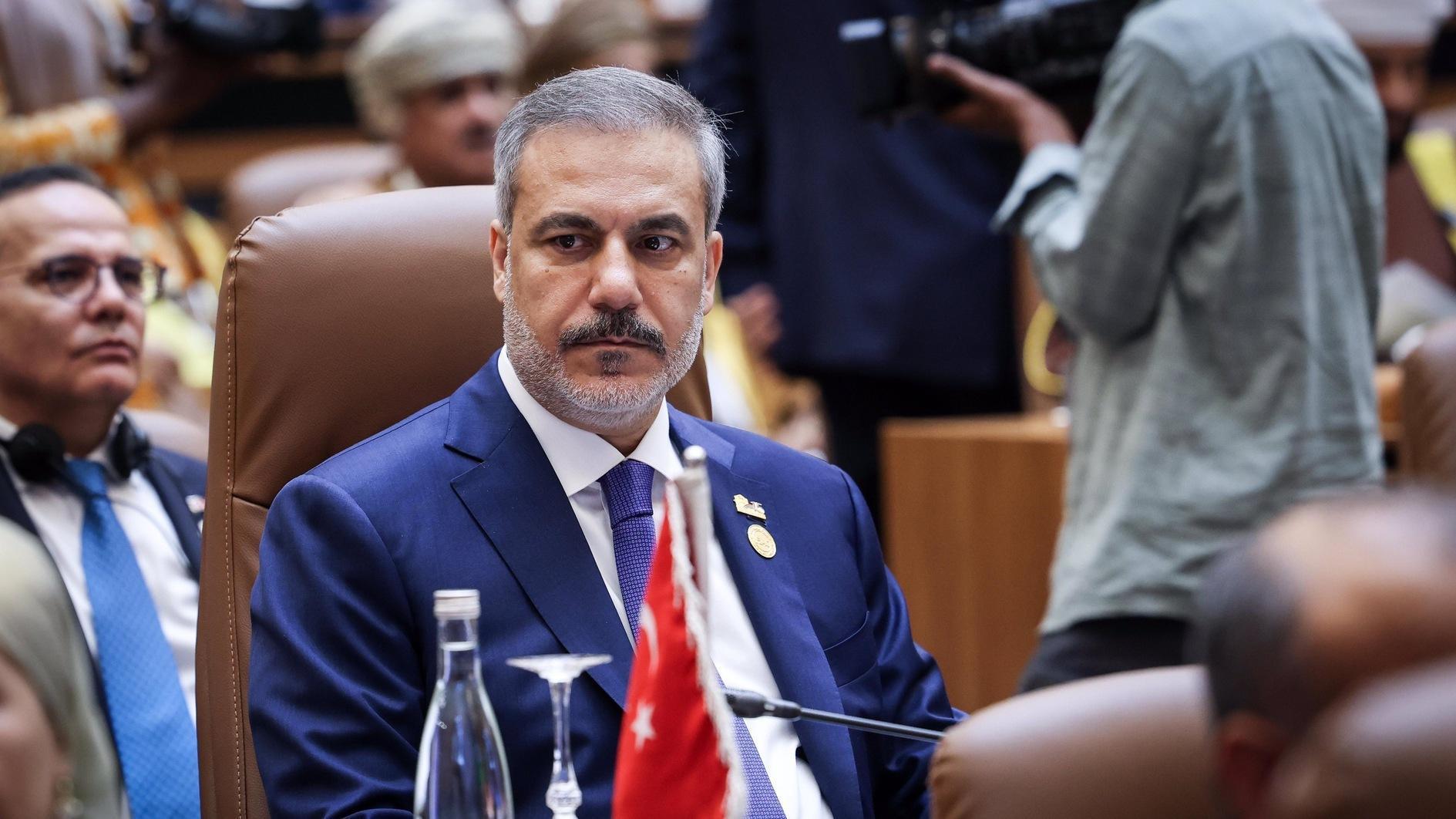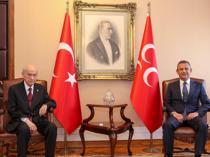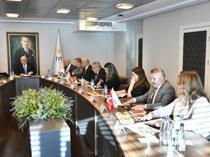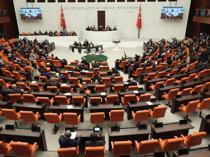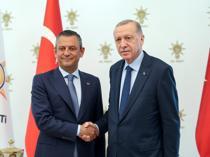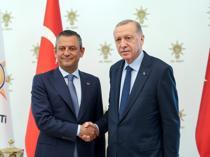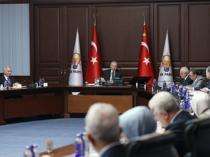Charter heads into ‘the hardest stage,’ says Parliament Speaker
ANKARA - Hürriyet Daily News

Parliamentary Speaker Cemil Çiçek (C), Sports Minister Suat Kılıç (L) and Göksel Bozkurt (R), chair of the Association of Parliamentary Reporters and a Hürriyet Daily News staff member, walk in Parliament corridors. AA photo
Putting the new charter into words will be “the hardest stage” in the drive for a new constitution, said Parliament Speaker Cemil Çiçek, who stressed that he saw no other option than success.“The writing process [of the new constitution] is the hardest stage. We should discuss everything on the table and write the text after reaching reconciliation,” Çiçek said during a visit to the Association of Parliamentary Reporters (PMD).
Four parliamentary political parties have not yet voiced their views at Parliament’s Constitution Conciliation Commission, although their representatives at the panel lent an ear to the different views, Çiçek said. “Everybody made general statements on the issue in their [parliamentary] group meetings, but they did not specify their demands. That’s why it will be the hardest stage.”
According to Çiçek, Parliament will deserve quite a bit of gratitude if it succeeds in creating a new constitution, but added that he “sees no other option than success.” Çiçek will hold a meeting Thursday with legal advisors selected by the parties to help with the process. On Friday the Constitution Conciliation Commission will begin work for draft preparations.
53 institutions,18,000 pages of input
Although the first phase of the constitution creation process — hearing the views and expectations for the new charter — has come to an end, Çiçek said they will take any further contributions into consideration.
Over the past six months the cross-party Constitution Conciliation Commission heard the views of 153 institutions and read through approximately 18,000 pages of input submitted by mail. Additionally, some 25,000 people posted their proposals on the commission’s website.
The commission had asked all 165 universities, 78 bar associations and over 14,000 nongovernmental organizations (NGO) to express their views on the new charter.
Three sub-commissions of the panel heard 14 non-parliamentary political parties, 39 labor unions, 21 universities and 79 NGOs, among them prominent figures of non-Muslim religious communities, Alevi associations, the Gender Identity and Sexual Orientation Studies Association and the Conscientious Objectors Platform.
The views heard formed over 2,000 pages of input.The Constitution Conciliation Commission also travelled to 13 provinces around the country as part of the “Turkey Speaks” platform to hear people’s expectations.



